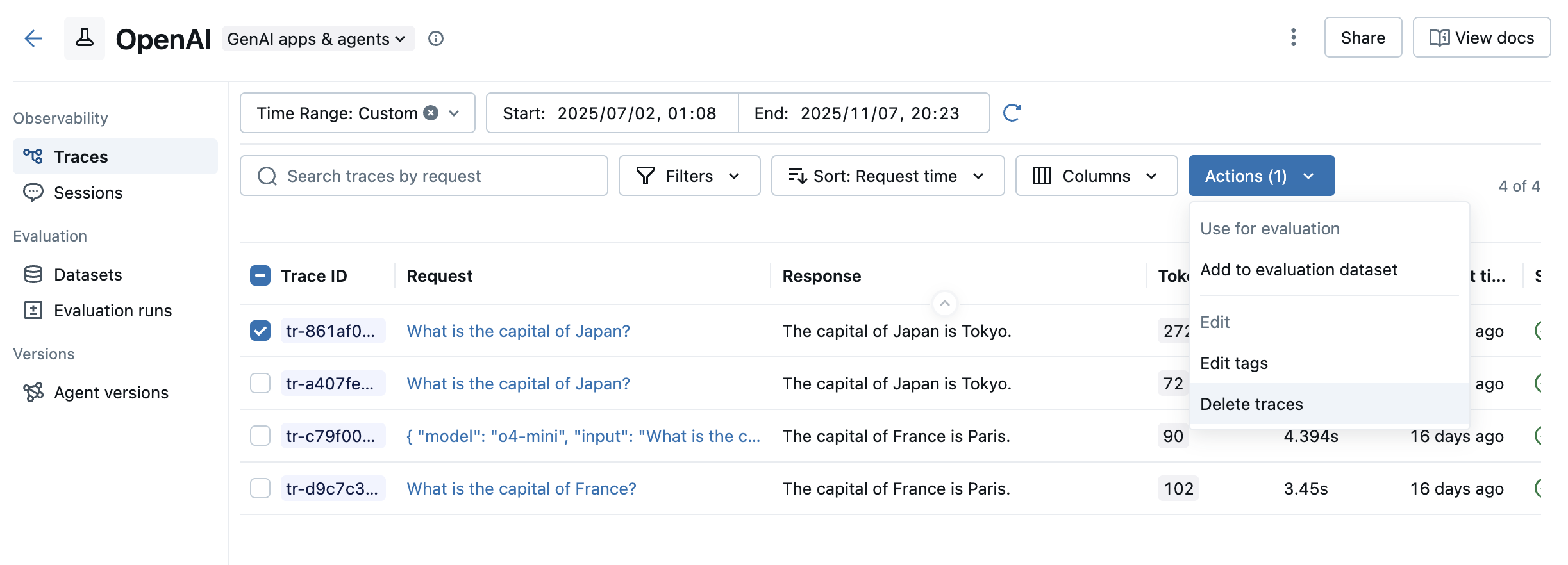Delete Traces
You can delete traces based on specific criteria using the mlflow.client.MlflowClient.delete_traces() method. This method allows you to delete traces by timestamp or trace IDs.
Deletion is irreversible
Deleting a trace cannot be undone. Ensure that the parameters provided to the delete_traces API meet the intended range for deletion.
Deleting traces from MLflow UI

Delete traces older than a specific timestamp:
python
from datetime import datetime, timedelta
# Calculate timestamp for 7 days ago
seven_days_ago = datetime.now() - timedelta(days=7)
timestamp_ms = int(seven_days_ago.timestamp() * 1000)
deleted_count = client.delete_traces(
experiment_id="1",
max_timestamp_millis=timestamp_ms,
)
print(f"Deleted {deleted_count} traces")
Delete specific traces by their trace IDs:
python
from mlflow import MlflowClient
client = MlflowClient()
# Delete specific traces
trace_ids = ["trace_id_1", "trace_id_2", "trace_id_3"]
deleted_count = client.delete_traces(experiment_id="1", trace_ids=trace_ids)
print(f"Deleted {deleted_count} traces")